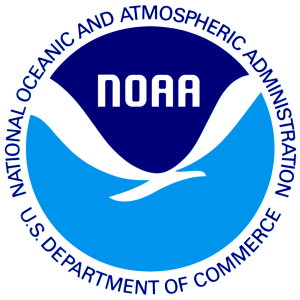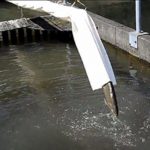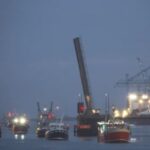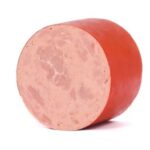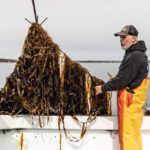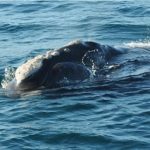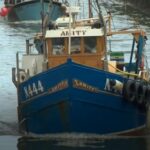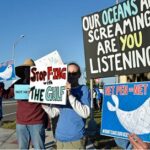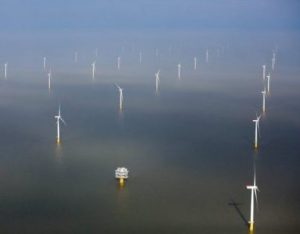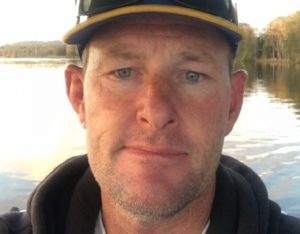Tag Archives: President Trump
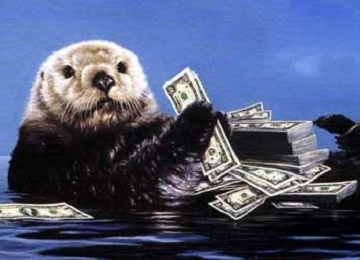
“Sea Otters To End West Coast Fishing” Huh! fishermen need to suck it up and “find another job?
For decades, Julie Packard has spearheaded a campaign to curtail fishing under the guise of “conservation.” As this campaign has evolved, it has become a tale of precaution. The campaign started as a need to save the sea otter. Did otters really need “saving?” That is entirely debatable, and was, extensively. The result was clearly non-scientific and summarized as a “choice” between fishing or sea otters. Friends Of The Sea Otter shill Steve Schmeck was quoted saying fishermen need to suck it up and “find another job.” The California urchin divers took issue and were represented by Pacific Legal Foundation in litigation. USFWS cited inability to manage the otter population. The result was USFWS having zero oversight and getting away with lying and breaking the law.,,, Fast forward to today: The Monterey Bay Aquarium & Julie Packard have infiltrated the government and the economic chain. The money, influence and placement of persons in nonprofits, universities and government positions has created an oligarchy and a serious ethics problem. This is a big read with links and information from California Sea Urchin Diver Jeff Crumley. > Click to read< 22:01
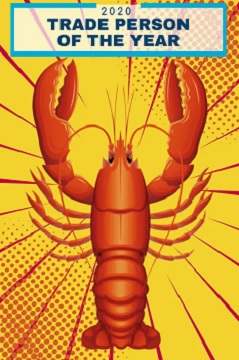
Lobsters Are A Prawn In The Trade Wars
American lobster and lobster fishers got caught in a trade war being fought on multiple fronts. The United States is battling China on one major front and the European Union (EU) on another, but as is typical in trade wars, it’s lobster production in another country that’s winning the war. In this case, Canada. If that weren’t enough, tariffs are the root cause of the trade war, but not in the way you might think. China’s tariffs on U.S. lobsters are in retaliation for President Trump’s China tariffs over intellectual property. The EU didn’t raise its tariffs on U.S. lobster, but rather lowered them on Canadian ones as part of their free trade agreement. In other words, U.S. lobsters were never meant to be the target of either Chinese or EU,,, How the lobster trade war started isn’t nearly as interesting as the efforts to stop it. >click to read< 10:28
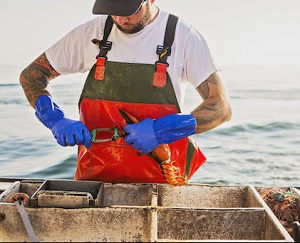
$36 million in trade relief awarded to Maine lobstermen
Maine lobstermen have been awarded a total of $36,284,110.12 to date to help offset the financial harm they have experienced due to China’s retaliatory tariffs, according to a news release. The funding has been provided through the U.S. Department of Agriculture’s (USDA) Seafood Trade Relief Program. Following a letter the Maine Delegation sent to President Trump in June 2019, the Administration issued a Presidential Memorandum that called on USTR and USDA to provide the lobster industry with the same form of financial assistance,,, >click to read< 08:50
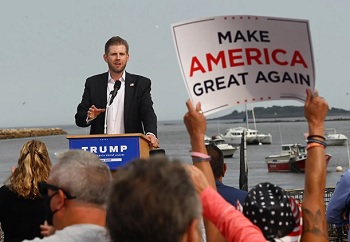
Eric Trump tells Maine lobstermen: ‘We will never, ever let you down’
When Seth Dube was growing up in Camp Ellis, Saco’s gritty seaside community boasted a robust ground fishing fleet, but the draggers are mostly gone now, replaced by lobster boats like his. The sixth-generation fisherman blames government overregulation for that industry’s demise, and used to worry lobstering could be next. That was before President Trump became a friend of the Maine fisherman, Dube said – reopening marine monuments to fishing, delaying environmental rules that would have forced some lobstermen to install greener diesel engines, inking a trade deal allowing tariff-free lobster trade with Europe and giving lobstermen trade relief for lost China sales. >click to read< 11:19
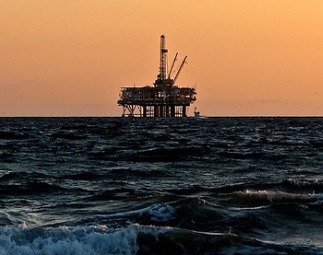
President Trump to to prohibit offshore drilling along Florida, Georgia and S.C. coasts
The president signed a memorandum on Tuesday instructing the interior secretary to prohibit drilling in the waters off the South Carolina coast, Georgia coast and both Florida coasts. The ban would last for a period of 10 years, from July 1, 2022, to June 20, 2032. “South Carolina is blessed with the most beautiful and pristine beaches, sea islands, and marshes in the nation. Seismic testing and offshore drilling threatens their health and jeopardizes the future of our state’s $24 billion tourism industry. Today’s announcement is good news, but we must remain vigilant in the conservation and preservation of our coastline,” said Gov. Henry McMaster. The existing moratorium covers the Gulf of Mexico, and Trump said the new one would also cover the Atlantic coast. >click to read< 08:30
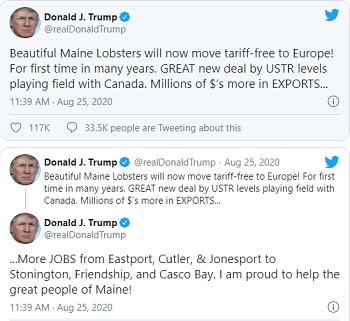
USDA trade aid for lobster industry using coronavirus coffers
The Trump administration is committed to starting an aid program to help the struggling lobster industry, Agriculture Secretary Sonny Perdue said Wednesday, but the funds to do so will come from the coronavirus stimulus package, not the aid used to bail out farmers after President Trump’s trade war with China. The lobster industry, like many others during the coronavirus outbreak, has seen losses as markets on cruise ships and restaurants evaporate.,, Trump has began paying considerable attention to Maine’s lobster industry starting this summer, traveling to Bangor in June to announce he would reverse protections for the Northeast Canyons and Seamounts Marine National Monument. >click to read< 18:07

Northern Right Whales Are on the Brink, and Trump Could Be Their Last Hope
The task of responding will fall to an unlikely champion, President Trump, whose recent appeals for support from Maine lobstermen could clash with the task of saving the right whale. Peter Corkeron, a senior scientist at the New England Aquarium who spent nearly a decade chronicling the gruesome deaths of right whales as the director of the National Oceanic and Atmospheric Association’s research program for large whales, said he feared the listing would have little impact. “Lobstermen certainly recognize the dire circumstance that the right whale species is in right now,” Patrice McCarron, “We’re in this awkward situation where right whales are not doing great, and it’s certainly not the fault of the commercial fisheries.”PEER also filed a complaint last year with the inspector general of the Commerce Department, which oversees NOAA, arguing that federal officials intent on reopening fishing areas have been ignoring their own scientists on climate change as well as other threats to whales. >click to read< 11:37
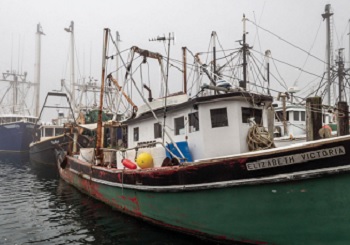
Point Judith fishermen optimistic as Northeast Canyons and Seamounts Marine National Monument restrictions ease
Removal of restrictions for an underwater national park sealed off from commercial fishing trawlers and lobstermen will now provide a bonanza of opportunities for fishing boats in Point Judith, said Fred Mattera, advocate for commercial fishing. According to Mattera, executive director of the Commercial Fisheries Center of Rhode Island, this once lucrative fishing spot will now again enable them to bring back large hauls to be sold to for restaurants, grocery stores and ingredients for other foods. Last Friday President Trump removed those restrictions and opened the area once more to fishing, but the decision has produced an outcry from various environmental groups warning of the potential destruction to unique marine life. >click to read< 14:49
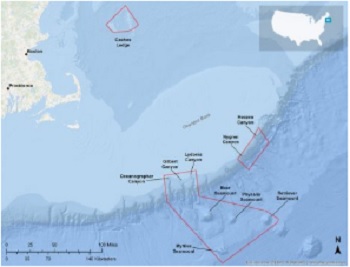
Trump Rights a Wrong by Opening Marine Monument to Commercial Fishing
President Trump used the occasion of a visit to Maine last week to do right by an industry that hasn’t had much good news lately when he reopened to commercial fishing nearly 5,000 square miles of ocean south of New England that President Barack Obama closed in 2016. Stay tuned. In the process of righting a wrong,,, Obama created the area, known as the Northeast Canyons and Seamounts Marine National Monument, just a few months before he left office. He portrayed the monument, the only one in the Atlantic, as a hedge against climate change.,,, Obama also >considered the area around Cashes Ledge<, 80 miles off Rockland, for monument status, which would have been devastating for Maine fishermen. Ultimately, he took a pass, but environmentalists have not given up on the idea. By Jerry Fraser, >click to read< 08:00
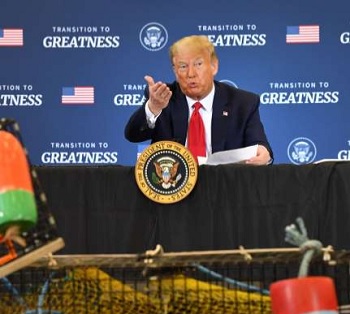
President Donald J Trump:“We are reopening the Northeast Canyons to commercial fishing”, Threatens New EU, China Tariffs Over Maine Lobster
President Trump on Friday announced that he will reopen the Northeast Canyons and Seamounts Marine National Monument off the coast of Massachusetts for commercial fishing. “We’re opening it today. We’re undoing his executive order,””We are reopening the Northeast Canyons and the Seamounts Marine Region to commercial fishing.” >click to read<
Remarks By President Trump In A Roundtable On Supporting America’s Commercial Fishermen >click to read<
Trump Threatens New EU, China Tariffs Over Lobster in Maine Trip – President Donald Trump threatened to impose tariffs on cars made in the European Union and on unspecified Chinese products unless the two regions reduce their duties on U.S. lobster, during a visit to Maine where he plans to lift Obama-era fishing restrictions. “If the European Union doesn’t drop that tariff immediately, we’re going to put a tariff on their cars, which would be equivalent,” Trump said in a roundtable event in Bangor, Maine, with commercial fishermen and the state’s former Republican governor, Paul LePage. “It’ll be the equivalent, plus,” he added. >click to read< 15:51
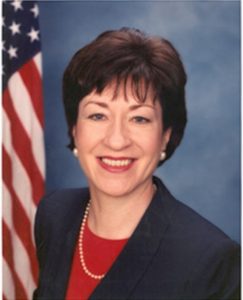
CARES Act : Maine’s cut of $300 million in federal seafood industry funding is nation’s fifth-highest.
Maine is in line to get $20 million to help its battered seafood industry weather the COVID-19 storm. The award, announced Thursday by U.S. Sen. Susan Collins, R-Maine, comes out of the $300 million in federal funding included in the CARES Act to help the U.S. fishing industry survive the economic losses associated with the coronavirus pandemic. Maine’s award was the fifth-highest out of 31 states. Commissioner Patrick Keliher said Thursday that he was only just learning about the award and would not be making any comments about distribution plans, , or priorities, until he received specific guidance from the NOAA. >click to read< 13:44
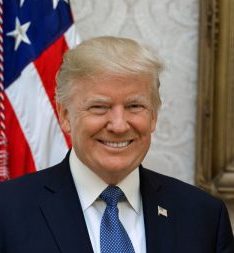
Trump signs $2T coronavirus relief package to help American workers and businesses
President Trump on Friday signed a bipartisan $2 trillion economic relief package aimed at helping American workers and businesses impacted by the coronavirus pandemic. The bill includes $1,200 one-time payments to many Americans; sets up a $500 billion corporate liquidity fund to help struggling industries like airlines; allocated $377 billion for aid to small businesses; and boosts the maximum unemployment benefit by $600 per week for four months, among other provisions. Trump signed the legislation hours after it passed the House, thanking Republicans and Democrats “for coming together, setting aside their differences and putting America first” with the legislation. >click to read< 06:52

Coronavirus: Letter from 200+ US seafood industry stakeholders to Trump Administration
March 24, 2020, Dear President Trump. We write as participants in America’s seafood supply chain, a critical component of the country’s domestic food infrastructure and one of the major economic drivers in our country’s coastal communities and states. Empty restaurants, cafes, and dining halls are a visible reminder of the ongoing, unprecedented public health efforts to blunt the spread of COVID-19. The livelihoods of the chefs, cooks, servers, and other staff are obvious and direct casualties of those government efforts. The economic disruption caused by forced restaurant closures and active encouragement for Americans to “shelter in place,” however, extend far beyond the food service sector. >click to read< 19:37
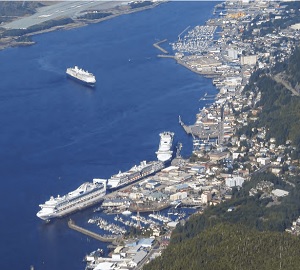
Coronavirus: Perfect storm?
What no one could foresee when the sun rose in Utqiagvik (formerly Barrow) on Jan. 23 and everything seemed so normal was that the planet was already hurtling toward a global economic slowdown with possibly devastating repercussions for a fragile, Alaska economy dependent on oil, tourism, fisheries and the state Permanent Fund – all now suffering the fallout from the consequences of an invisible, contagious and too-often-deadly pathogen. A month before that sunrise, with Utqiagvik still cloaked in darkness, a new coronavirus spawned no one knows exactly where was already spreading in Wuhan, China far to the south and west. more, >click to read< 15:09
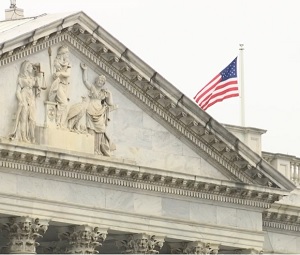
California water debate heads to court after Trump joins discussion
After years on the sidelines, the Bureau of Reclamation Commissioner Brenda Burman says new federal plans to divert water from the delta region in Northern California to farms in the southern part of the state will bring water where it’s needed most. “It is meant to balance all of the factors. More for people, more reliable for some of the best farmland in the world, more reliable for fish as well,” Burman said. But for decades, environmentalists and the fishing industry argued pumping threatens endangered fish species. Video, >click to read< 09:37

“This is our line in the sand,”: Facing new threats, lobstermen take hard line against right whale protections
“My administration will not allow any bureaucrat to undermine our lobster industry or our economy with foolish, unsupported, and ill-advised regulations,” Governor Janet Mills told a crowd of cheering lobstermen at a protest this summer at a protest this summer in Stonington. The backlash started shortly after a government-appointed team of scientists, fishermen, and others urged the agency to require lobstermen to reduce their buoy lines, among other measures.,, But with increasingly vocal protests across Maine’s rugged coast from rank-and-file lobstermen, the state’s leaders — including their entire congressional delegation,,, >click to read< 12:17
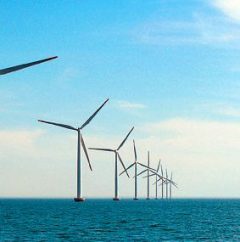
Booming wind industry’s big worry
Land-based turbines are rising by the thousands across America, from the remote Texas plains to farm towns of Iowa. And the U.S. wind boom now is expanding offshore, with big corporations planning $70 billion in investment for the country’s first utility-scale offshore wind farms.,,, The Interior Department cited the surge in corporate interest for offshore wind projects in saying it wanted more study before moving forward. It directed Vineyard Wind to research the overall impact of the East Coast’s planned wind boom.,, Federal fisheries officials have been among the main bloc calling for more study, saying they need to know more about the impacts on ocean life. >click to read< 14:23

President Trump! About our great Fishermen, our great Farmers and tariffs
President Trump, as we sit here listening to your arena chat with another strong crowd of support tonight (9-16-2019) in New Mexico, you once again brought up the nations farmers, I’d like to mention another group of outstanding, and hard working Americans, U.S. Commercial Fishermen, of whom many are your supporters that have been standing with you on the trade war. We have heard the praise of the Miners, and the Farmers, and its time for you to praise the Fishermen. >click to read< 11:31

Vineyard Wind Gasping for Air Until 2020
The Bureau of Ocean Energy Management has delayed the construction off our coast of Vineyard Wind, the country’s first commercial scale offshore wind farm, until 2020. I believe President Trump is squarely behind all the concerns of the commercial fishing industry that haven’t been adequately resolved by the wind farm folks, and if you don’t get the problems addressed now, as Carlos Santana would say, “you can forget about it.” Because five other offshore wind projects are planned adjacent to the site. Phil Paleologos >click to read< 19:58
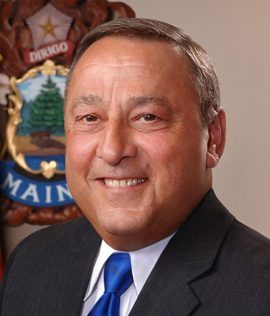
LePage appeals to Trump on lobster regulations
Former Maine Gov. Paul LePage sent a letter this week to President Trump opposing proposed regulations designed to protect endangered North Atlantic rights whales that LePage says will be detrimental to the state’s signature lobster industry. In his three-page letter, LePage called the proposal by the National Oceanic and Atmospheric Administration to reduce the number of end lines – the ropes that connect traps to buoys – by 50 percent “another federal overreach in response to big money environmentalists.” >click to read<08:05

President Trump Announces 12 Year Ban On Offshore Wind Power Development
April1st – Early this morning President Donald J. Trump announced a total moratorium on the
planning, development, and construction of offshore windmills for the next twelve years. The President
cited numerous reasons for his decision and declared “This part of the Green New Deal is dead, the only
thing green about offshore wind is the money being thrown around of which the taxpayers and
electricity users will be forced to pay back in excessive electric rates and subsidies.” By Boris Badenuff>click to read<21:15
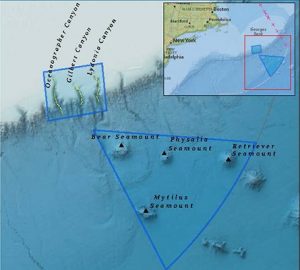
Trump’s national monument changes return to spotlight
But in the 15 months since Trump downsized the Utah monuments, the president has done nothing with Zinke’s proposal to shrink two more monuments, in Oregon and Nevada, and change rules at six others, including allowing commercial fishing inside three marine monuments in waters off New England, Hawaii and American Samoa.,, Zinke is now gone ,,, commercial fishing operators who say jobs will be lost unless Trump reverses Obama’s 2016 creation of the Northeast Canyons and Seamounts monument off the New England coastline, where boats previously targeted squid, swordfish, tuna and other fish. Bonnie Brady, executive director of the Long Island Commercial Fishing Association, recalled meeting with Zinke in 2017 to air the industry’s concerns. >click to read<16:40
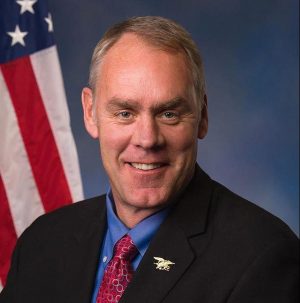
Ryan Zinke Is Leaving The Interior Department, Trump Tweets
Ryan Zinke is out as Secretary of the Interior. Zinke will be leaving the Trump administration at the end of the year; his successor is expected to be announced next week. On Saturday morning President Trump tweeted that Zinke is leaving after serving for almost two years. He said Zinke has accomplished much during his tenure, and thanked him for his service. Zinke’s departure comes after a tumultuous two years at the department, marked by mounting allegations of misconduct in office. He also faced the prospect of congressional probes after newly-elected Democrats take majority control of the House. >click to read<10:55
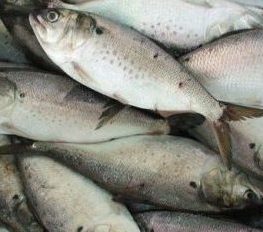
A Political Fish Tale That Could Bait Trump
A fish story isn’t one without a bit of exaggeration. Consider menhaden: A bony, little fish used for bait and to make fertilizer, animal feed, dietary supplements and lipstick, it is vital to marine ecology as a bottom-of-the-food-chain staple for other creatures, finned and winged, and as an oceanic janitor, scrubbing waters clean of algae. And menhaden is the protagonist in an economic and political tale that could lead to a confrontation between President Trump and the state that denied him a sweep of the South in 2016: Virginia.,,, And this fish story includes a little-noticed and rare breach between Gov. Ralph Northam and his predecessor, fellow Democrat Terry McAuliffe,,, Racing to the exits, McAuliffe, whose political action committee received $15,000 from Omega in 2017, initiated an appeal to the Atlantic States Marine Fisheries Commission to forgo the new restriction. >click to read<12:24

Zinke backs shrinking more national monuments and shifting management of 10
Interior Secretary Ryan Zinke on Tuesday called on President Trump to shrink a total of four national monuments and change the way six other land and marine sites are managed, a sweeping overhaul of how protected areas are maintained in the United States.,,, He also would revise the proclamations for those and the others to clarify that activities such as grazing, motorized vehicle use and commercial fishing should be allowed. The additional monuments affected include Northeast Canyons and Seamounts in the Atlantic Ocean; both Rose Atoll and the Pacific Remote Islands in the Pacific Ocean; New Mexico’s Organ Mountain-Desert Peaks and Rio Grande Del Norte; and Maine’s Katahdin Woods and Waters. click here to read the story 16:50
Drill, baby, drill in the eastern Gulf? Don’t even think about it
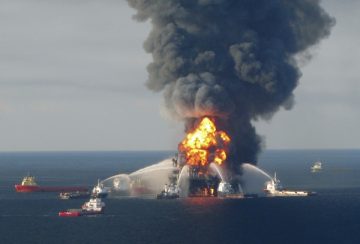 Only a lucky break kept oil from the historic BP spill in 2010 away from the Florida Keys and Southwest Florida’s beaches. Though the spill happened off the coast of Louisiana, so much oil gushed from the blowout that it reached the Loop Current, which is part of the Gulf Stream. Normally, the current would have brought the oil far enough to reach South Florida after blackening beaches in the Panhandle. Yet oil lobbyists and Congress are firing again. Congressional Republicans want to open more of the Gulf of Mexico to drilling. President Trump, who favors more exploration for fossil fuels, is empowering them. click here to read the story 13:09
Only a lucky break kept oil from the historic BP spill in 2010 away from the Florida Keys and Southwest Florida’s beaches. Though the spill happened off the coast of Louisiana, so much oil gushed from the blowout that it reached the Loop Current, which is part of the Gulf Stream. Normally, the current would have brought the oil far enough to reach South Florida after blackening beaches in the Panhandle. Yet oil lobbyists and Congress are firing again. Congressional Republicans want to open more of the Gulf of Mexico to drilling. President Trump, who favors more exploration for fossil fuels, is empowering them. click here to read the story 13:09
Storm brews over Maine’s monument offshore, too
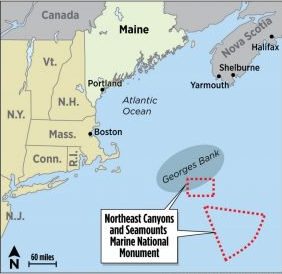 Zinke has recommended that the Northeast Canyons and Seamounts Marine National Monument – a 4,913-square-mile area of underwater canyons, thousand-year-old coral forests, and volcanic mountains on and beyond the southern edge of Georges Bank at the mouth of the Gulf of Maine – be opened to commercial fishing, a move proponents say would defeat its purpose.,, The heads of eight of the nation’s fisheries management councils – the industry-led bodies that implement fisheries regulations in federal waters – were already on record against the commercial fishing restrictions.,, Peter Shelley of the Conservation Law Foundation, an environmental attorney who is watching the case closely, strongly disagrees. click here to read the story 08:35
Zinke has recommended that the Northeast Canyons and Seamounts Marine National Monument – a 4,913-square-mile area of underwater canyons, thousand-year-old coral forests, and volcanic mountains on and beyond the southern edge of Georges Bank at the mouth of the Gulf of Maine – be opened to commercial fishing, a move proponents say would defeat its purpose.,, The heads of eight of the nation’s fisheries management councils – the industry-led bodies that implement fisheries regulations in federal waters – were already on record against the commercial fishing restrictions.,, Peter Shelley of the Conservation Law Foundation, an environmental attorney who is watching the case closely, strongly disagrees. click here to read the story 08:35
Crab bill strengthening the Pacific Northwest’s Dungeness crab industry heads to President Trump
 A bill introduced by Oregon’s Sens. Ron Wyden and Jeff Merkley to strengthen Oregon’s crab fishery passed the United States Senate and will now head to the president’s desk for signature into law. The bill permanently extends a decades-long fishery management agreement that has been vital to the Pacific Northwest’s Dungeness crab fishery.,,, The states of Oregon, Washington, and California cooperatively manage the West Coast crab fishery in federal waters under a tri-state agreement that Congress first authorized in 1998. The act would make that authority permanent. click here to read the story 15:51
A bill introduced by Oregon’s Sens. Ron Wyden and Jeff Merkley to strengthen Oregon’s crab fishery passed the United States Senate and will now head to the president’s desk for signature into law. The bill permanently extends a decades-long fishery management agreement that has been vital to the Pacific Northwest’s Dungeness crab fishery.,,, The states of Oregon, Washington, and California cooperatively manage the West Coast crab fishery in federal waters under a tri-state agreement that Congress first authorized in 1998. The act would make that authority permanent. click here to read the story 15:51






